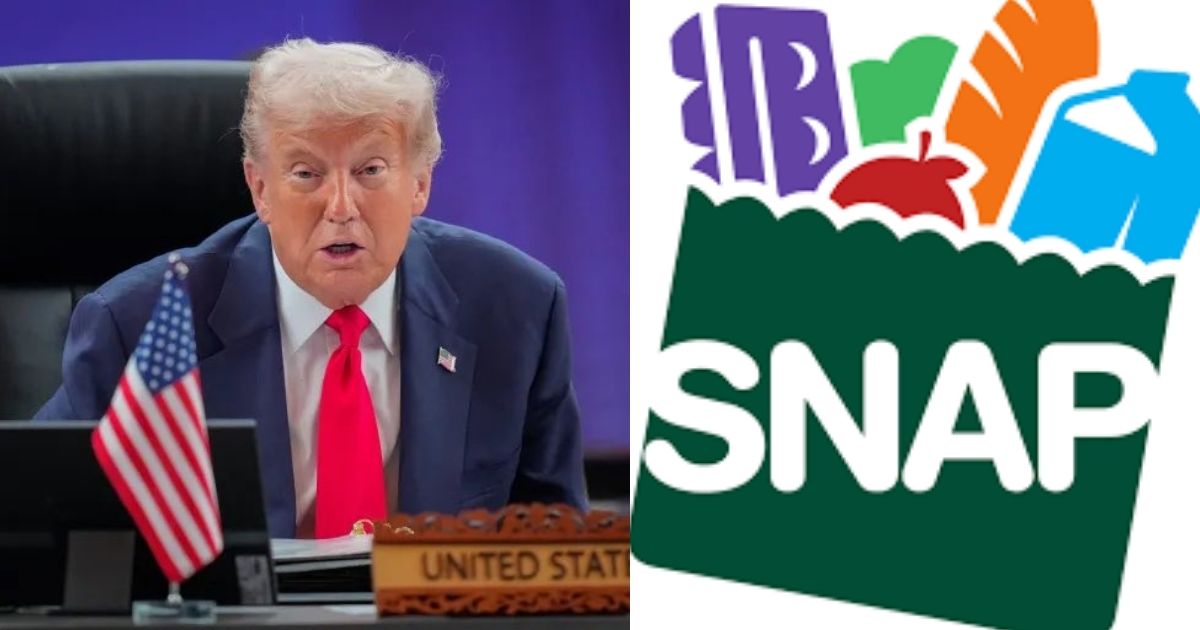The federal government shutdown has stretched into its fourth week. Millions of Americans have now gone without pay for almost a month, especially in an economy where most of the population in the country lives paycheck to paycheck. Food insecurity has gone through the roof. Millions are now starving in a food crisis that could begin soon.
Among the affected services that have a direct impact on food security is the Supplemental Nutrition Assistance Program (SNAP). It is commonly known as food stamps. This service supports over 42 million low-income Americans. Among those who are dependent on food stamps are working families, children, and seniors.
Cuts to SNAP and a refusal to fund it during the shutdown, plus the increased cost of food because of his tariffs, means Americans will starve.
We’ll never truly know how bad it gets, because Trump cancelled the report on hunger because he knows it will make him look bad. https://t.co/PMh4U6QRIf pic.twitter.com/4WifWGElPO
— Melanie D’Arrigo (@DarrigoMelanie) October 25, 2025
The shutdown has now affected the SNAP benefits for its millions of recipients, as all new funding has been affected. The U.S. Department of Agriculture (USDA) has now warned that SNAP benefits will not be issued next month to those who are awaiting their arrival.
The department has also released a statement and has placed blame on Senate Democrats for refusing to approve the funding package. However, there are several critics who have accused the Donald Trump administration of weaponizing food assistance and trying to push partisan agendas.
There are $5 billion in contingency funds that have been left untapped. Yet the political gridlock has further deepened, and everyone is asking the same question: how will this shutdown impact food security for millions of Americans?
USDA says it won’t tap emergency funds for food stamps, leaving 40 million set to lose aid next week — Axios
— NewsWire (@NewsWire_US) October 24, 2025
The shutdown has deepened political lines among Americans. Both sides are blaming each other.
New York Governor Kathy Hochul has blamed Washington Republicans. She is calling out the federal government for “holding hostage the dinner tables of working families,” and is arguing that food access should never be tied to political games.
Meanwhile, the Trump administration is blaming democrats. They are insisting that Democrats have chosen to “prioritize healthcare for illegal aliens” over reopening the government.
Agriculture Secretary Brooke Rollins had attempted to clarify the USDA’s stance.
“There’s a false narrative that we don’t care about food security. The truth is, we’re ensuring long-term accountability in our nutrition programs.”
Yet, the department made the decision not to use the contingency funds. This move has fueled anger from governors, advocacy groups, and ordinary citizens alike.
If no agreement is reached, SNAP benefits will stop for over 40 million Americans, cutting off critical nutrition support for the country’s poorest citizens. The average monthly benefit of $177 per person might seem small, yet it helps families buy groceries, feed children, and stay afloat between paychecks.
The Food Research & Action Center has claimed that nearly two-thirds of SNAP recipients are working families and one in five are seniors. There is no one who is just sitting, enjoying the benefits. SNAP benefits are just an added advantage for those who are trying very hard to provide for their families.
85,000 Utah households depend on SNAP benefits. Our food banks are already feeling the impact and won’t be able to fill the gap. I sincerely hope that @SenSchumer and @RepJeffries recognize their hypocrisy and vote to reopen the government immediately. For six months I’ve heard… https://t.co/vihbG1HsDl
— Congressman Blake Moore (@RepBlakeMoore) October 23, 2025
The loss of benefits will hit hardest in rural and urban areas that are already struggling with job cuts and inflation.
“I don’t know how we’ll make it through the month,” said Maria Lopez, a single mother from Ohio. “My kids rely on those benefits. Without them, we’re choosing between rent and food.”
In response to the failing federal system, nonprofits and corporations are stepping in. DoorDash has announced an Emergency Food Response Initiative to help deliver groceries to families affected by the shutdown. Feeding America and local food banks are ramping up supplies, anticipating a surge in demand.













